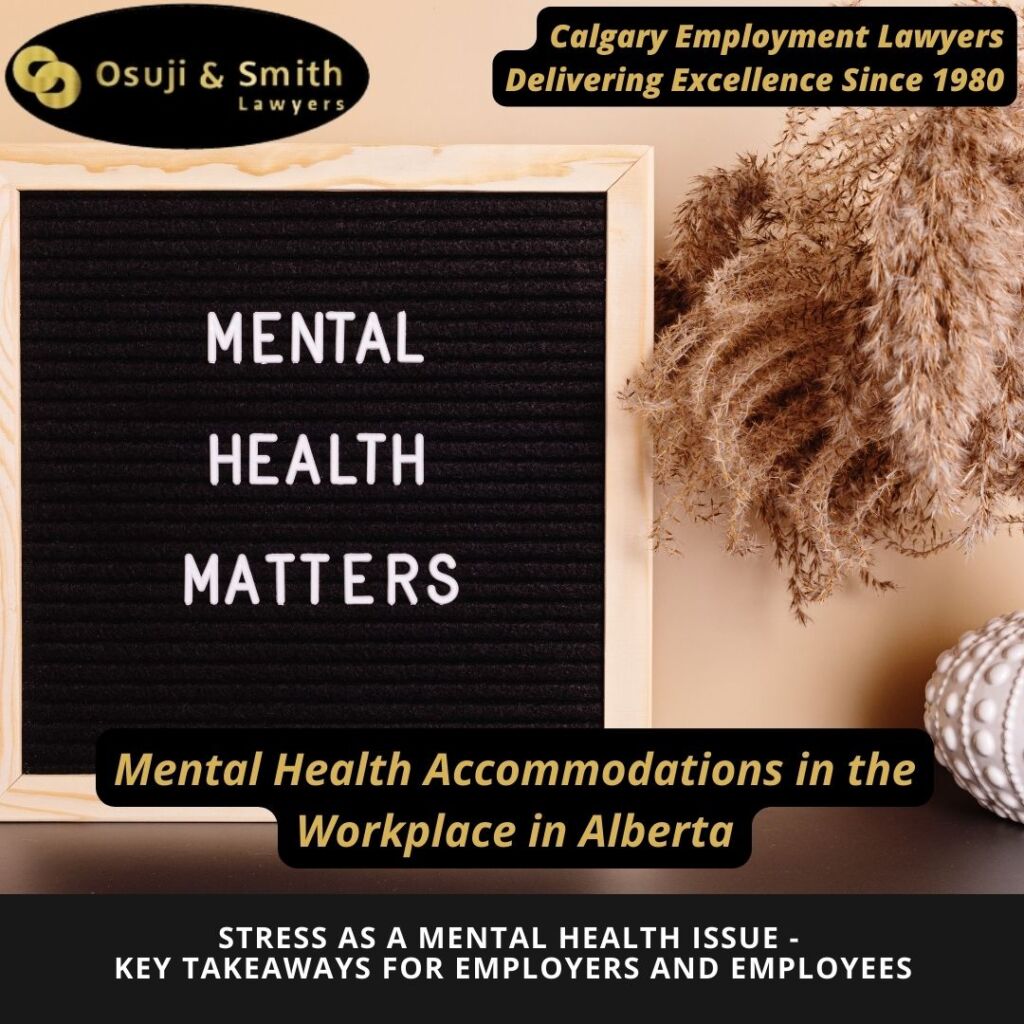Navigating MENTAL HEALTH ACCOMMODATIONS IN THE WORKPLACE IN ALBERTA
Lessons from VOLPI V ALBERTA (HUMAN RIGHTS COMMISSION) 2023 ABKB
In a recent decision, Volpi v Alberta (Human Rights Commission) 2023 ABKB sheds light on the delicate balance between an employee’s responsibility to disclose health-related challenges and an employer’s duty to inquire about an employee’s well-being. This case, heard by Hayes-Richards J, dealt with an application for judicial review following the dismissal of a complaint of discrimination based on mental disability. The applicant, facing mental health issues, contended that his resignation was a consequence of his employer’s failure to provide adequate accommodation.
Background of the Case
 The crux of the matter lay in the interplay between the employee’s obligation to communicate disability-related needs and the employer’s duty to investigate when signs suggest that an employee’s health may impact their ability to work. The applicant argued that his employer, unaware of his mental health challenges and previous hospitalization for mental health reasons, should have reasonably known about the impact of stress and burnout on his mental health.
The crux of the matter lay in the interplay between the employee’s obligation to communicate disability-related needs and the employer’s duty to investigate when signs suggest that an employee’s health may impact their ability to work. The applicant argued that his employer, unaware of his mental health challenges and previous hospitalization for mental health reasons, should have reasonably known about the impact of stress and burnout on his mental health.
However, Hayes-Richards J, upon reviewing the evidence, found that the employer was indeed unaware of the employee’s mental health challenges and the nature of the prior hospitalization. The judge highlighted that the record did not support the applicant’s claim that the employer should have inferred the connection between stress, burnout, and the employee’s mental health issue. Additionally, the judge noted that the terse resignation letter, containing typos and lacking letterhead, did not convey the severity of the “medical crisis” experienced by the applicant.
Employer’s Duty to Inquire
One crucial aspect addressed in the decision is the employer’s duty to inquire when there is reason to suspect that an employee’s health condition may affect their ability to work. The judgment clarified that, in this case, the information available to the employer did not trigger a duty to inquire further or necessitate accommodation. The judge emphasized that the employer had consistently granted time off whenever requested, suggesting a willingness to support the employee’s needs.
Stress as a Mental Health Issue
The decision also delved into the nuanced concept of stress as a mental health issue. Acknowledging that stress is a common aspect of many jobs, the judge highlighted that stress alone does not automatically qualify as a mental health condition. However, stress could be deemed a mental health condition if supported by a medical diagnosis. The decision underscored the importance of evaluating each case individually to determine whether an individual’s stress qualifies for protection under the law.
Key Takeaways for Employers and Employees
Clear Communication: The case underscores the importance of clear communication between employees and employers. Employees are encouraged to disclose relevant information about their health conditions, ensuring that employers are well-informed.
Duty to Inquire: Employers must be attentive to signs or information that may suggest an employee is facing health challenges. However, the decision emphasizes that this duty is not limitless and is contingent on reasonable suspicion.
Individualized Assessment: Stress is a common factor in the workplace, but its classification as a mental health condition depends on the specific circumstances and a medical diagnosis. Employers should approach each case with a nuanced and individualized perspective.
Documentation Matters: In assessing an employer’s awareness, the court considered the documented history of time off granted to the employee. Employers should maintain clear records of accommodation measures and requests.
In conclusion, Volpi v Alberta (Human Rights Commission) provides valuable insights into the intricate dynamics of mental health accommodation in the workplace. Employers and employees alike should be cognizant of their respective responsibilities, fostering a workplace environment that prioritizes open communication and understanding.
Author: Shikha Shukla


